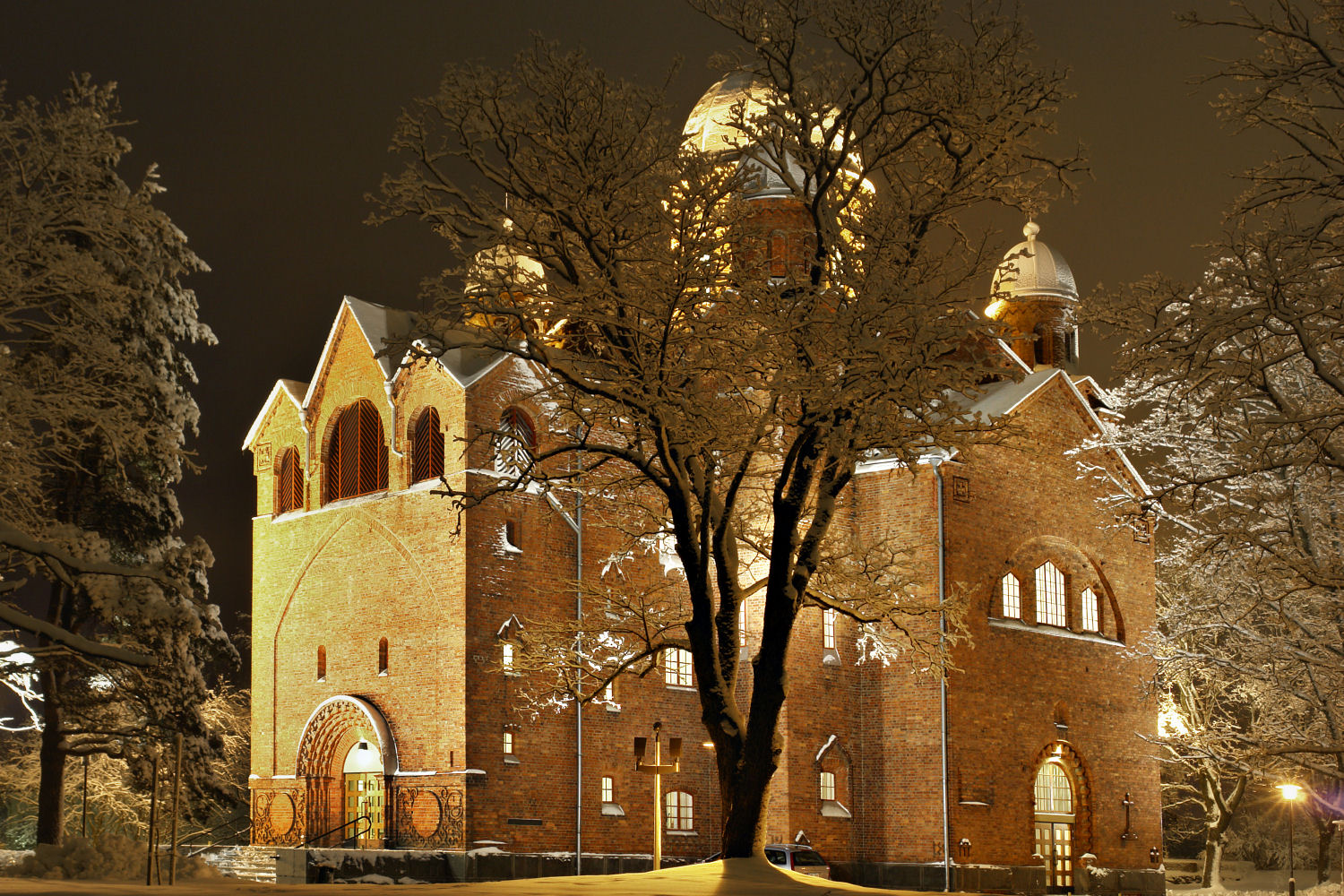Lappeenranta Church
The Lappeenranta Church was inaugurated on 12 August, 1924. The Church was initially built as a garrison church for the Orthodox Church. The Christ on the Cross altar piece is a work by Ilmari Launs, from 1924. The red-brick church is located in a beautifully scenic spot, amidst what are known as Nicholas’s Embankments. The church is an example of typical neo-Byzantine architecture.
Services and concerts are held at the church. The church is open to the public in the summer and at other times, on request.
The church was originally designed by Russian academic Georg Kosekoff to see to the needs of the Russian garrison that was located next door. Construction was initiated in 1912 and the goal was for the church to be completed by the 300th anniversary of the Romanov family, in 1913, but this was not accomplished. In August 1914, construction was put on hold for good, as the military units were transferred to active service from the garrison, after the First World War began.
After World War I ended, the church project was resumed. An Orthodox church had been erected, at a central location in the city of Lappeenranta, on Nicholas’s Embankments. After Finland gained independence, the church building fell to the Finnish state. The Government donated the church, which looked completed on the outside, but was completely unfinished on the inside, to the parish of Lappeenranta, in 1919, stating that it was “to be used for the purposes of the parish and other Christian aims”.
The famous Architect Josef Stenbäck designed the preliminary plans for the changes needed to transform the Orthodox church into an Evangelist Lutheran church. The mechanical pipe organ, in the church, is from 1967.


